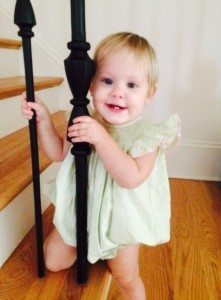 Basic logic begs the question: since we lose baby teeth anyway, why do they need to be brushed and cleaned? It’s a question we are often asked and one that is quite understandable from that limited perspective. The truth is that proper care of deciduous teeth, or baby teeth, is far more important than most people realize on two fronts.
Basic logic begs the question: since we lose baby teeth anyway, why do they need to be brushed and cleaned? It’s a question we are often asked and one that is quite understandable from that limited perspective. The truth is that proper care of deciduous teeth, or baby teeth, is far more important than most people realize on two fronts.
First and foremost, despite their limited lifespan, baby teeth can develop cavities and contribute to the same oral and gum diseases as their permanent counterparts. Decaying or lost baby teeth can create myriad problems for growing babies including poor speech development, impeding good nutrition, and causing permanent teeth to come in crooked by not holding a proper place for them.
Secondly, children who grow up learning good dental hygiene habits from infancy are considerably more likely to keep them though adulthood. Old habits die hard and teaching your children to develop proper oral care habits at an early age is one of the greatest gifts you can ever give them.
Caring for baby teeth can begin as soon as they first appear. Initially use a clean, damp washcloth or gauze pad to gently wipe the very first teeth. As more teeth appear, upgrading to a small soft-bristled toothbrush or finger brush with just a tiny drop of toothpaste can be used. Make sure to use only toothpaste specifically designed for babies as adult toothpastes can be too harsh and the often strong mint flavoring can be too intense for baby’s delicate palate. Your dentist can help make proper recommendations for everything you need.
As your baby becomes a toddler, he will most likely want to try brushing on his own. We highly encourage this as it is a wonderful way to start developing those important dental hygiene habits. Just understand that a toddler simply doesn’t have the dexterity or motor skills needed to accomplish proper brushing techniques so it is vital that you come back afterwards to finish the job. Presenting your child with a fun character toothbrush is a great way to get them interested in brushing and it’s also very helpful to let them watch parents brushing their own teeth as children typically want to mimic mom and dad. While each child’s development is unique, as a general rule most pediatric dentists recommend that children be given supervision and help during brushing until they are at least six years old. Teaching a child to brush after every meal is an invaluable lesson that they will actually thank you for one day.

